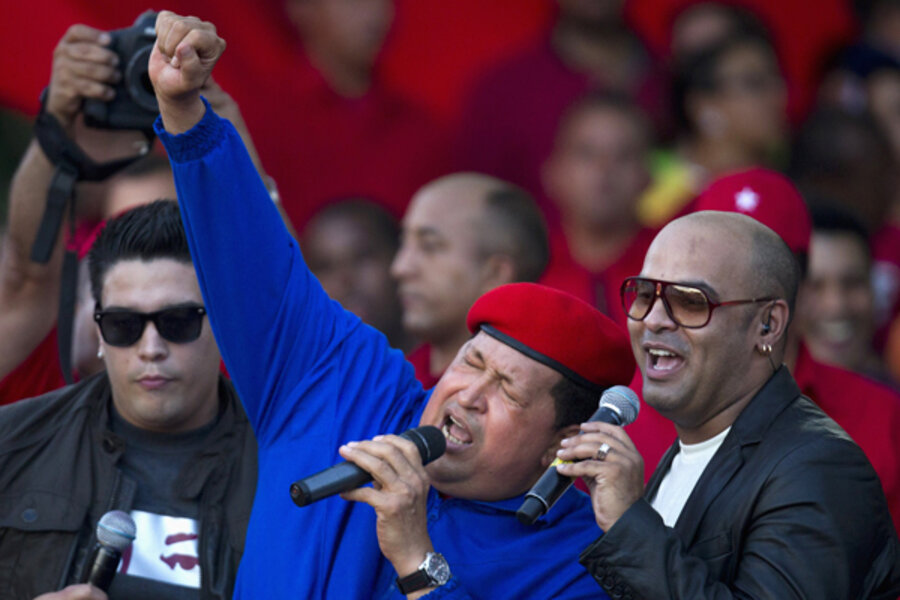Does oil giant Chevron want Chavez to win reelection in Venezuela?
Loading...
• A version of this post ran on the author's blog. The views expressed are the author's own.
A couple days ago, Raúl Gallegos published a decent little column about how Chevron is, if not betting on a Hugo Chávez reelection, at least setting itself up for a long, happy relationship with the Bolivarian Republic.
Chevron has no illusions about how Venezuela works. It first set up shop there in the 1920s, when strongmen showed heavier hands than Chavez. Scores of populist governments and two oil-industry nationalizations later Chevron is still pumping crude. And when PDVSA asked for a couple of billion to invest in Boscan, a jointly-run field Chevron first came across in the 1940s, the oil major obliged. The 13-year loan is costing PDVSA Libor plus 4.5 percent, far less than the 11 percent that its 2027 bonds pay.
I quibble with a bit of the column, but basically, he’s right. Chevron in Venezuela is now too big to nationalize.
RELATED: How much do you know about Hugo Chavez? Take our quiz!
I had thought Repsol fell into the same category. But maybe not. Check out this article from last night.
Venezuela President Hugo Chavez warned Repsol SA (REP) to “think carefully” about taking action against Argentina after it nationalized its YPF SA (YPFD) unit, indicating the Spanish company may face ramifications in Venezuela.
“They have a lot of investment here in Venezuela,” Chavez said on state television after holding a meeting with Argentine Planning Minister Julio De Vido in Caracas. “What happens there in Argentina affects what happens here.”
What jumps out here is that Chávez has never made any similar threats against Chevron over its $18 billion debt to ostensible ally Ecuador. If you haven’t followed that whole story, here’s an article, the plaintiff’s version and the company’s version, but long story short, Chevron was sued in the US for polluting Ecuador. It got the case moved to Ecuador, apparently thinking courts there would be friendlier. Courts there ruled against the company and ordered a huge amount of compensation. Chevron insists that the rulings were flawed by corruption, though I think it’s fair to ask, if they were worried about corruption, why did they get the case moved to Ecuador? The whole thing is a mess.
If Chávez were ideological, you’d think that the anti-Chevron campaigners would find open ears in Venezuela, and would even now be auctioning off the Boscan oilfield to pay the Ecuador debts. Instead, I don’t think Chávez has ever mentioned the case. And Chevron is piling in ever more billions of dollars.
Those of you who think politics has anything to do with ideas might be surprised by this. Please learn.
– Steven Bodzin is the Santiago, Chile correspondent for the Monitor. He also blogs at Setty's Notebook.







